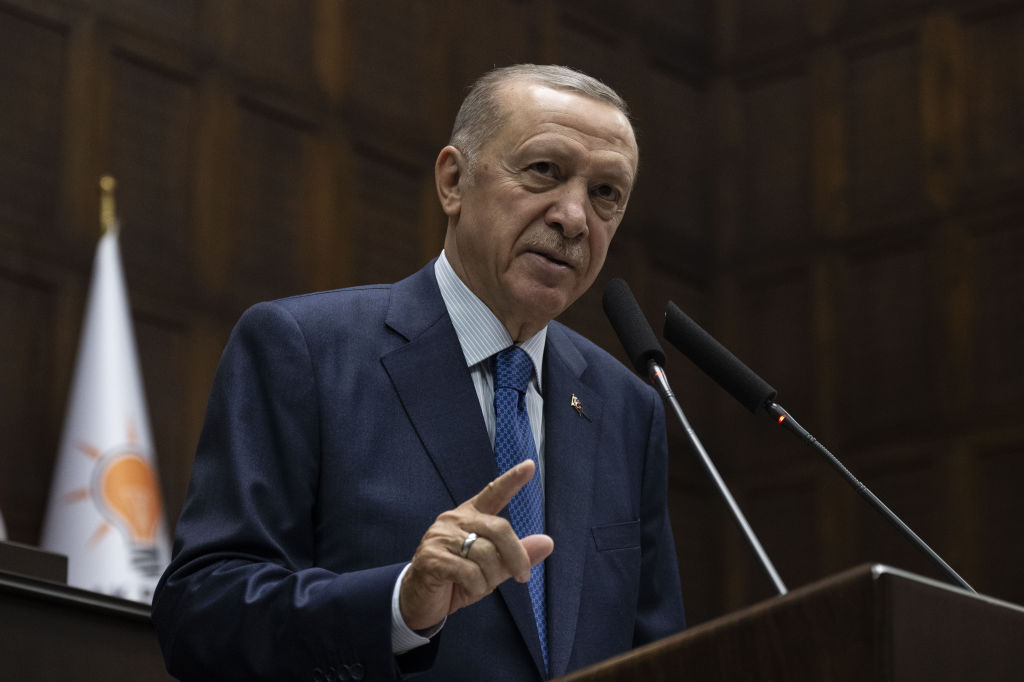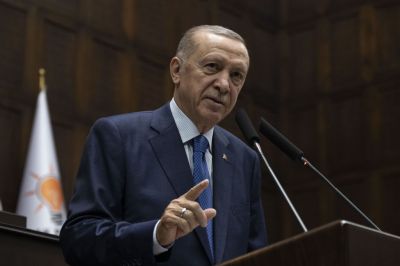We are captives of the present. Up until the May elections, most observers of Turkish politics focused (correctly) on Recep Tayyip Erdoğan’s plans regarding foreign policy. Questions about domestic policy concentrated mainly on whether Erdoğan would return to economic orthodoxy and what strategy he might deploy to win back municipal governments in local elections next year. What is beginning to emerge, however, is Erdoğan’s desire to engage in social engineering so that his constituents’ world and societal views mirror his own. This desire has strong undertones of fascism that will close off Turkey’s population off to values and norms associated with the West.
Erdoğan has struggled to top the 50 percent threshold necessary to hold power in his last three presidential elections. This has vexed him, as it’s become abundantly clear that half the country doesn’t want him to remain president. To win successive elections in 2014, 2018 and 2023, Erdoğan has relied on an increasing degree of authoritarian antics to ensure that he retains power. The biggest components of this strategy include state and media capture. In the case of the former, the judiciary, law enforcement, and rule by executive fiat have ensured a state apparatus that has become one with Erdoğan. The president decrees; the state implements. In the case of the latter, it is no secret that Erdoğan has overseen the construction of a media environment that is overwhelmingly loyal and compliant to make his image shine.
Despite having an overwhelming amount of control and influence over fundamental institutions, though, Erdoğan has been unable to gain the votes of Turkey’s educated, Kemalist, pro-Western, secular, and critically minded individuals. It’s not for a lack of effort. Throughout his tenure as prime minister from 2003 to 2014, many individuals who identified with one or a combination of these demographics gravitated to Erdoğan and his Justice and Development Party (AKP), mainly because the AKP of that era successfully projected itself as a big tent party that delivered economic growth and political stability while seemingly positioning Turkey on the path to European Union (EU) accession. That AKP and the Erdoğan who led it no longer exist.
Erdoğan’s base of voters has increasingly shrunk to a narrower demographic, one that is suspicious of the West and its values and is paranoid about its intentions for Turkey. It is a worldview that fundamentally meshes with Erdoğan’s, who still believes that the United States was complicit in the failed 2016 coup and that Turkey can thrive wholly without being beholden to Western impositions.
This is problematic, because while Erdoğan is able to motivate his base, his ability to reach the 50 percent electoral threshold has been decreasing. The only reason he prevailed in the May election was because of his alliance with Devlet Bahceli’s Nationalist Movement Party (MHP) and the support of a number of fringe far-right parties. One option to grow his voter base would be to return to the big-tent approach of his earlier years. He will not do that, because he cannot. Reverting back to democratic, accountable, and transparent governance would expose Erdoğan to legal jeopardy, where he would have to account for crimes such as abuse of power and corruption. More importantly, he is thinking about legacy. He is almost 70 years old and does not look well. What kind of country does he want to leave behind, and how can he ensure that his family will not be hunted by judicial authorities once he departs from office?
If he can’t persuade the remaining half of the county to vote for him, then he will try to alter societal values and norms from the bottom up. Former AKP parliamentarian Metin Kulunk, who is believed to be a close confident of Erdoğan, has begun divulging what the AKP and Erdoğan should pursue going forward: banning viewing platforms such as Netflix and Apple TV+ entirely; redesigning Turkey’s entire primary education system to reflect “Turkish values” that shield the youth from “degenerate ideologies” (read LGBTQ+ rights). Nothing about what Kulunk suggests is new. The AKP and Erdoğan are keenly aware that they have failed in convincing the vast majority of Turks who espouse more universal values. To this end, Erdoğan, since 2016 has spent considerable energies in appointing partisans to university positions, which finally made headlines with the appointment of a president for Turkey’s most prestigious university, Bosphorus University—an act which to this day is being resisted by most existing faculty. Since the May elections this year, scores of conventional schools in large cities such as Istanbul and Ankara, which offer traditional curriculums in the humanities and sciences, are bracing for the appointment of thousands of “religious officials” from the Directorate of Religious Affairs, to act as “moral advisers” to students.
The fear is that these initiatives are based on instilling values into children that are not only conservative and based on the state’s—that is, Erdoğan’s—interpretation of Islamic and Turkish values, but a fundamental worldview that is home grown (“yerli ve milli” in Erdoğan’s words) and increasingly hostile to and removed from universal democratic norms and values. In the cultural realm, this is being mirrored by entities such as the main state broadcaster, the TRT, filming new television shows which dehumanize and delegitimize public figures. For example, a new show, titled “Metamorfoz,” vilifies businessman and philanthropist Osman Kavala, who has been in prison for more than 2,000 days. Kavala, widely regarded as a human rights activist, was jailed for life for allegedly masterminding the Gezi Park protests of 2013. The Gezi movement represented the first public protests against the Erdoğan government since he came to office in 2003. The protests initially began in opposition toErdoğan’s decimation of green spaces in Istanbul, quickly morphing into a wider national protest movement against Erdoğan himself. The state cracked down heavily and denounced it as a terrorist movement, branding individuals like Kavala as the ring leaders. If universal platforms such as Netflix are banned in Turkey, citizens will be left relying on homemade TV propaganda, allowing Erdoğan to shape their views. The big question is whether these strategies can succeed in getting Turkey and its citizens to fall in line with Erdoğan’s anti-Western worldview.
Only time will tell. The longer Erdoğan remains in power, the greater his chances of molding the public’s mindset, which is being bombarded on a daily basis with disinformation and polarizing rhetoric. This is visible in the media, popular culture, and public discourse. It is toxic to say the least. However, to what extent these policies can be pursued after Erdoğan departs office is a big question. Will he have the ability to designate and groom a successor that will be accepted by the state and its elites? One has reason to be skeptical of this. Egypt’s Hosni Mubarak, arguably one of the most institutionalized authoritarian leaders in the world, failed to anoint his son to succeed him. Turkey’s authoritarian chokehold may still be limited to Erdoğan’s presence. That said, when Erdoğan leaves office it will take time for Turkey’s population to recover from more than two decades of divisive and polarizing rhetoric.






Please note that we at The Dispatch hold ourselves, our work, and our commenters to a higher standard than other places on the internet. We welcome comments that foster genuine debate or discussion—including comments critical of us or our work—but responses that include ad hominem attacks on fellow Dispatch members or are intended to stoke fear and anger may be moderated.
With your membership, you only have the ability to comment on The Morning Dispatch articles. Consider upgrading to join the conversation everywhere.